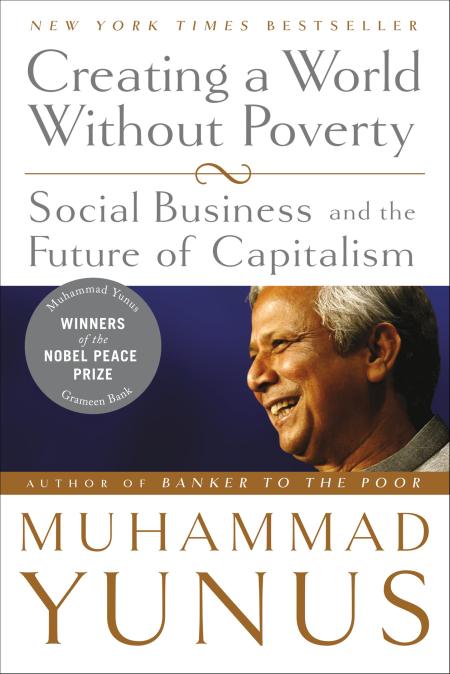Shopping Cart
Creating a World Without Poverty
Social Business and the Future of Capitalism
Description
From Nobel Prize winner and bestselling author of Banker to the Poor, “an inspiring volume, full of practical information” (BusinessWeek) on the power of creative entrepreneurship to solve global inequality
What if you could harness the power of the free market to solve the problems of poverty, hunger, and inequality? As founder of Grameen Bank, Nobel Peace Prize–winner Muhammad Yunus pioneered microcredit, the innovative banking program that provides poor people—mainly women—with small loans they use to launch businesses and lift their families out of poverty. In Creating a World Without Poverty, Yunus goes beyond microcredit to pioneer the idea of social business—a completely new way to use the creative vibrancy of business to tackle social problems from poverty and pollution to inadequate health care and lack of education. Yunus’s “Next Big Idea” offers a pioneering model for nothing less than a new, more humane form of capitalism.
What if you could harness the power of the free market to solve the problems of poverty, hunger, and inequality? As founder of Grameen Bank, Nobel Peace Prize–winner Muhammad Yunus pioneered microcredit, the innovative banking program that provides poor people—mainly women—with small loans they use to launch businesses and lift their families out of poverty. In Creating a World Without Poverty, Yunus goes beyond microcredit to pioneer the idea of social business—a completely new way to use the creative vibrancy of business to tackle social problems from poverty and pollution to inadequate health care and lack of education. Yunus’s “Next Big Idea” offers a pioneering model for nothing less than a new, more humane form of capitalism.
Newsletter Signup
By clicking ‘Sign Up,’ I acknowledge that I have read and agree to Hachette Book Group’s Privacy Policy and Terms of Use
Praise
“In Creating a World Without Poverty, Nobel Peace Prize winner Muhammad Yunus argues convincingly that social business is an achievable way of exploiting capitalism to help the poor. Yunus moves the debate beyond the tired argument that the rich should simply donate to those less privileged, and demonstrates that the free market can in fact be used to the advantage of the less well off…This book is a must-read for policymakers or philanthropists, and its conversational style and straightforward logic also make it appealing to the layperson.”
—Scotland on Sunday
“An inspiring volume, full of practical information for people who are motivated to try out his ideas.”
—BusinessWeek
“In this excellent work of popular economics, he tells the story of how he came to the idea and the impressive results it has generated.”
—Winnipeg Free Press
“The influential economist and winner of the 2006 Nobel Peace Prize outlines his vision for a new business model that combines the power of free markets with the quest for a more humane world. Includes stories of companies that are already doing social business.”
—Bookseller
“Infused with entrepreneurial spirit and the excitement of a worthy challenge, this book is the opposite of pessimistic recitals of intractable poverty’s horrors.”
—Publishers Weekly
